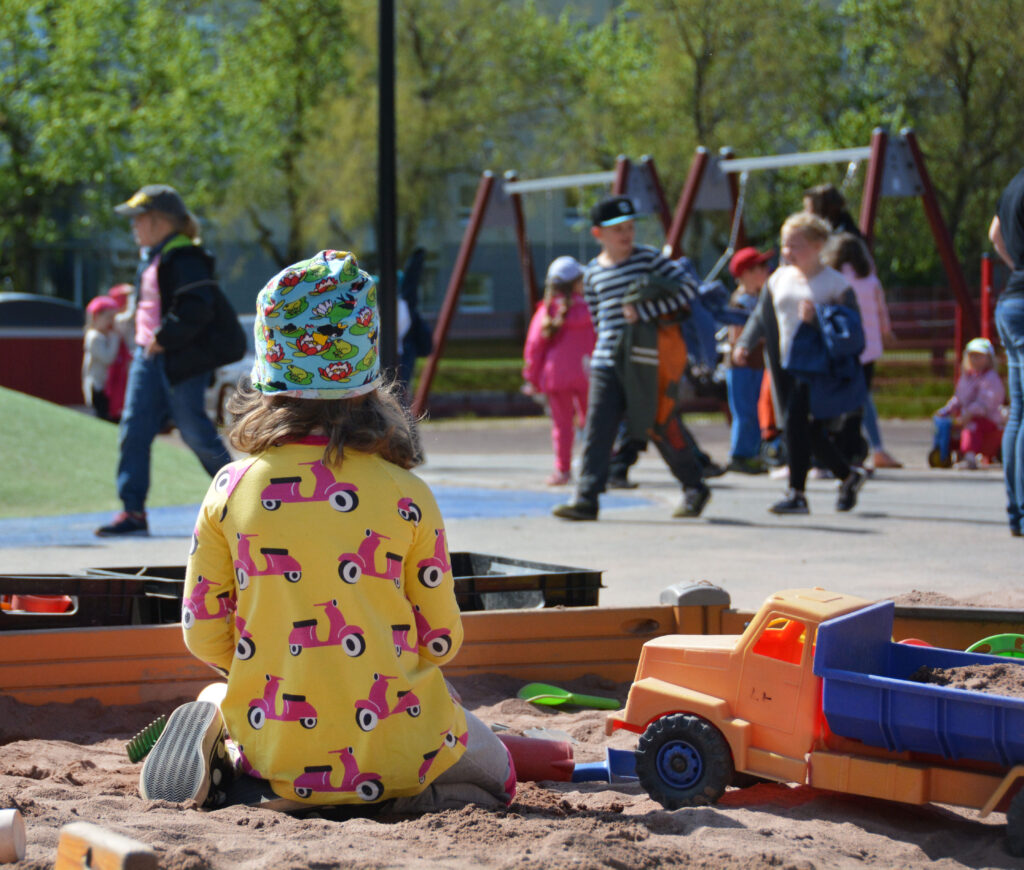Support for Growth and Learning

Different Forms of Support
Participation in early childhood education is a good foundation for a child’s development, learning and well-being. Early childhood education supports children’s development and learning according to their needs. It is important for the child that there is a consistent continuum of support during early childhood education and when the child starts pre-primary education.
The starting point for early childhood education is to enable all children to have access to the same high-quality early childhood education and care by providing the support they need as early as possible.
In Rauma, there are 6 integrated small groups with spaces for children with more severe needs. The vacant places are filled in the spring when the early childhood education groups are formed for the autumn. Each small group will be staffed by an early childhood special education teacher.
The support a child needs may be short-term and limited, in which case one form of support may be sufficient. Some children may need more intensive and regular support or several forms of support at the same time. The child’s application for early childhood education and care must mention the child’s need for support.
The child’s support for growth and learning is organised as part of the daily activities of early childhood education. Support is provided in the form of pedagogical, structural and therapeutic support.
In early childhood education, the consultant early childhood special education teacher is involved in the assessment, planning and organisation of the support, if necessary.
The support is provided primarily in the child’s own early childhood education group.
Child’s Early Childhood Education Plan
The support the child needs is recorded in the child’s early childhood education plan. It sets out the responsibilities and division of tasks related to supporting the child’s development and learning, the support provided and how it is delivered, the evaluation and any decisions on how to manage the support. The early childhood education and care plan is drawn up in cooperation with the child’s guardian. The plan is drawn up with the participation, where necessary, of experts or other relevant parties involved in supporting the child’s development and learning.
Early childhood special education
Background information
If your child needs support because of a physical reason or a reason related to knowledge, skills, emotions or social growth, the municipality tries to either implement the support at their current early childhood education establishment or find a more suitable place for your child.
Your child’s support can consist of different functional solutions, individualised small group activities or be a part of other day-care centre and early childhood education and care activities. You can get help from a special education teacher in early childhood education and care. Your child can receive support in multiple ways in cooperation with public health nurses, psychologists, social workers, music therapists, occupational therapists, speech therapists, family counselling, child psychiatry and the school.
More information
Information on fees
Service is chargeable.
Integrated Special Groups/Small Groups
- ‘Lillukat’ group in Kaivopuisto Daycare Center
- ‘Muumit’ group in Lajo Daycare Center
- ‘Jääkarhut’ group in Sampaanala Daycare Center
- ‘Puput’ group in Uotila Daycare Center
- ‘Muksutonttu’ group in Myllytonttu Daycare Center
In addition, there are small pre-primary groups at the Kari School and the Pohjoiskehä School.
Applications for integrated special education groups are made through an application for early childhood education. The application must mention the child’s need for support.
Consultant Early Childhood Special Education Teachers
The consultant early childhood special education teachers coordinate services for children with special education needs in early childhood education and pre-primary education, support and guide early childhood staff in matters of support, and cooperate with guardians and various experts. The child’s guardians can also contact the special education teacher directly.
Contact
-
Niitamo Katri
Early childhood special education teacher
Tel. +358 44 793 5180
katri.niitamo@rauma.fi